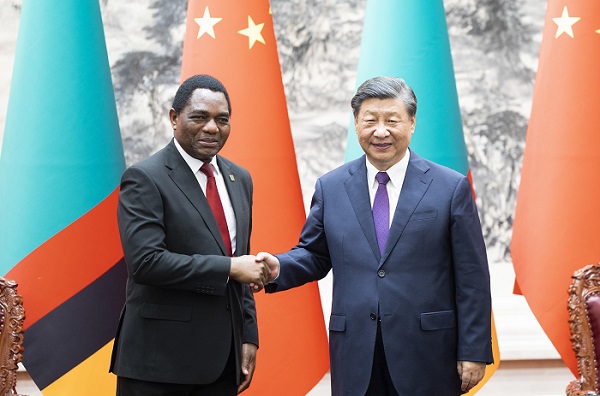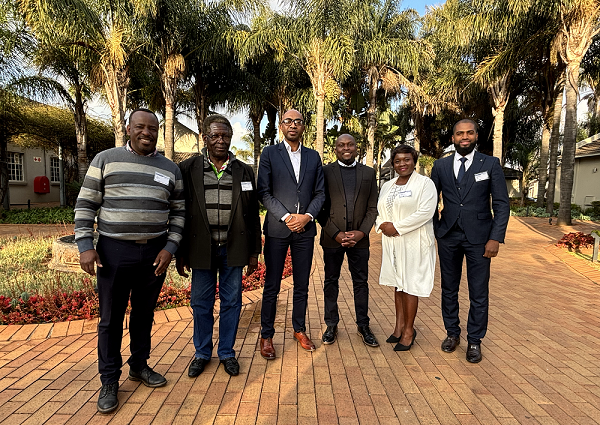by ARNOLD MULENGA
LUSAKA – ZAMBIA has accused local media of fuelling xenophobia against Chinese nationals and potentially disrupting diplomatic as well as business ties between the two nations.
Concurrently, China alleges the media is discrediting the Asian nation’s investment in Zambia.
This is the aftermath of the flighting in Zambia of a documentary described as an exposé of the environmental issues and poor working conditions linked to state, privately-owned companies and illegal Chinese businesses.
The ruling United Party for National Development (UPND) of Zambia and the Chinese embassy in the Southern African country expressed concern after the airing.
The film, “Chinese Investment in Zambia – The Good, The Bad and The Dangerous,” flighted earlier this week, two months after the Lusaka High Court initially issued a gag order before the film was due to be broadcast as the film’s trailer included images of alleged labour abuses and violence.
Other violations alleged sex trafficking, fraud and tax evasion.
“While the media has every right to pursue truth and accountability, we are disheartened by the tone and framing of this report, which risks inciting xenophobic sentiment and undermining genuine, lawful foreign investment,” UPND responded.
It is the party of President Hakainde Hichilema, in power since 2021 and in recent months solidifying ties with China.
The ruling party argued that while some content in the documentary might highlight legitimate concerns, the manner of presentation “laden with bias and generalization amounts to skewed reporting.”
It said such reporting targeted one nationality and risked souring diplomatic relations and triggering xenophobia, which was contrary to Zambia’s values of unity, peace and cooperation.
“As the ruling party, the UPND reiterates its support for responsible journalism that informs, educates and upholds ethical standards,” UPND stated.
“We call on media institutions to avoid sensationalism and instead promote balanced, development-oriented reporting that reflects Zambia’s position as a sovereign nation committed to international cooperation and mutual respect.”
According to UPDN, Chinese investment in Zambia is valued at over US$7 billion, with more than 80 000 Chinese nationals currently living and working in the country.
These investments span key sectors including energy, infrastructure, health, aviation and agriculture.
The Chinese embassy in Zambia defended China’s substantial investment contributions to Zambia and rejected the documentary as an “unbalanced” and “distorted” portrayal of Chinese engagement.
An embassy spokesperson, in the mission’s official social media, expressed “grave concern” over the content, alleging it “deliberately downplays China’s contribution to Zambia’s economic and social development.”
The embassy said the film did this while focusing heavily on “isolated negative incidents unrelated to Chinese investments.”
It acknowledged the importance of journalistic freedom but warned against “malicious sensationalisation,” “presumption of guilt,” and “bias” that undermine the positive outcomes of China-Zambia relations.
“Journalists and media houses should uphold professional integrity and ethics. We oppose attempts to discredit China-Zambia cooperation under the pretext of press freedom,” the embassy spokesperson stated.
The embassy thus urged all sectors of Zambian society to protect and build upon the achievements of more than 60 years of China-Zambia cooperation.
“Chinese investments in Zambia serve the common interests of the two countries and their peoples. They deserve to be treated with fairness, respect, and appreciation, not suspicion.”
The document has been flighted after the court revoked the gag initially ordered in May following an appeal by the Chinese Chamber of Commerce.
Sadibou Marong, Sub-Saharan Africa Director at Reporters Without Borders (RSF), said, “RSF is relieved the gag-order — which should never have been issued — was revoked, and is concerned this may be a burgeoning new tactic to silence investigations into Beijing’s activities in sub-Saharan Africa.”
The Centre to Protect Journalists expressed disquiet over the alleged use of Zambia’s new cyber crime laws to target journalists.
– CAJ News




